Ten international ensembles are making their first Proms appearance this year. Many are from countries that do not have an established tradition of classical music and operate outside the mainstream Euro-American hub that has dominated classical music for the past 300 years. Ten or 20 years ago many of these countries, which now boast world-class ensembles, barely even had an orchestra. We talked to players from the orchestras making their Proms debut and asked them to tell us about the role the orchestra plays in their country’s cultural life.
Yunpeng Zhao, cello, China Philharmonic Orchestra
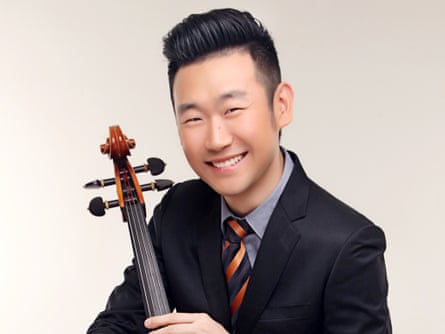
It means such a lot to be the first Chinese orchestra to perform at the Proms. We’re all working at 120% to make the concert the best we possibly can and to be an inspiration to our fellow Chinese musicians. The orchestra’s only 14 years old; I’ve been part of it for six years. All the musicians are Chinese, although some of us, such as myself, studied abroad. About 10% of what we perform is Chinese music – rearrangements of traditional music – or new compositions by contemporary composers such as Tan Dun, Philip Glass and Peter Ruzicka. We perform sometimes with erhu soloists – a traditional Chinese two-stringed violin – while a permanent part of our percussion section is a huge drum native to China made of animal skin.
This last decade, audiences in China have really got into classical music: there are 11 or 12 orchestras today in Beijing alone, and I’m seeing more and more young people in our audiences. Music education here is getting much better, parents are tough with their kids, but that does help them make progress. There’s a lot of very talented young musicians in this country, and I’m sure there’ll be more and more. We love how strongly our audiences react – we finish our last note and there’s an explosion! Last week, we played Mahler 5 with Semyon Bychkov and it was simply one of the greatest experiences ever for musicians and audience alike. They went crazy. Maestro Bychkov came out to bow maybe 10 times – the audiences wouldn’t let him go! But I think for me the strangest thing about performing outside of China will be how quiet audiences in the west are during performances. In China, some people chat and text on their cellphones and cough without covering their mouths.
The China Philharmonic Orchestra conducted by Long Yu performed on 19 July
Sylvia Hosking, double bass, Melbourne Symphony Orchestra
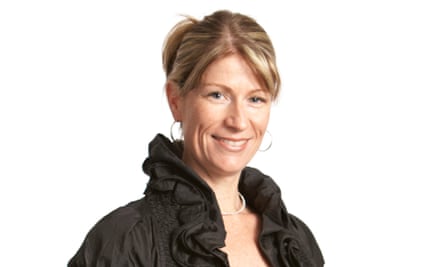
I trained at the Royal Conservatoire in the Hague and New York’s Juilliard school, but the plan always was to come back to Australia if I could, and the planets aligned and I got a job back in my hometown. The orchestra, founded in 1906, is the oldest professional orchestra in Australia. Today it has about 85 permanent members, some 90% of whom are Australians. The first two rounds of auditions are only open to Australians; only if no one suitable can be found are they then opened up to players from elsewhere. We focus on standard repertory: Mozart, Mahler, Tchaikovsky, but we also programme and promote Australian music, and showcase contemporary music in the annual Metropolis festival. We do all kinds of other performances too, from pops programmes to concerts with indigenous Australians and traditional instruments such as the didgeridoo. In 2003, we performed with Kiss – we got to wear the makeup. It was awesome!
The Melbourne Symphony Orchestra conducted by Sir Andrew Davis perform on 19 August
Kirill Bogatyrev, cello, Qatar Philharmonic Orchestra
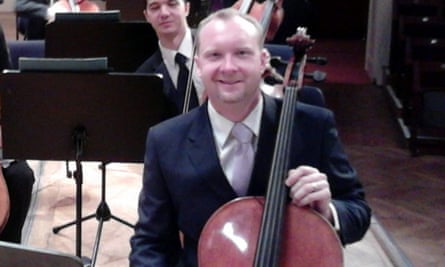
Everyone knows the LSO and the BBC SO and suchlike but surely that all gets a bit boring – come and hear a new orchestra at the Proms! The Qatar Philharmonic was created in 2008. I grew up and trained in St Petersburg and have been playing with the QPO since it began. There’s 30 different nationalities among the players, although none from Qatar itself. That might be set to change – two years ago, the first music academy opened in Doha where I and many of my colleagues teach.
Each year, we do five or six school concerts with Arabic- and English-speaking programmes for students – we need to create a new generation of music lovers. Our audience at first was mostly expats, but the last few years more locals have come, and they bring their kids. This is all new to Qataris – they have a different musical tradition after all. We perform mostly traditional west European repertoire, with a great deal of Russian music – which obviously I love! We’re bringing Rachmaninov and Tchaikovsky to the Proms as well as the European premiere of Iranian composer Behzad Ranjbaran’s Sunrise. We try to programme local music; Lebanese composer Marcel Khalife is in residence and we’ve been joined by musicians from Morocco, Syria and Egypt. Our audience is open to everything, but of course audiences everywhere have the same preferences – a Mozart Requiem and Beethoven Ninth will always be full.
The Qatar Philharmonic Orchestra conducted by Han-Na Chang perform on 7 September
Arngunnur Árnadóttir, clarinet, Iceland Symphony Orchestra
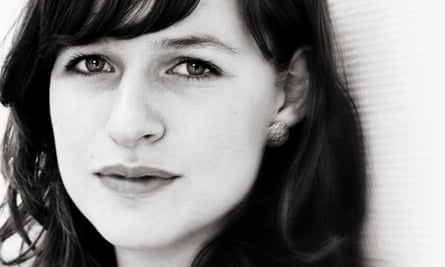
The orchestra was founded in 1950, six years after independence from Danish rule, the same year our national theatre opened – culture was seen as an important part in strengthening national identity. Today we’ve got 92 members, roughly 80% of whom are natives of Iceland; that figure is on the rise. We have to be very versatile as players. We host the annual contemporary music festival Tectonics Reykjavik and collaborated recently with heavy-metal band Skálmöld as well as with many other pop and rock artists. Our audience, similarly, are open to the new and experimental, and subscribers have more than doubled in the last five years. At the Proms we’ll be playing two Icelandic works, Magna by Haukur Tómasson and Geysir by Jón Leifs, pieces that describe the landscape of the country in music.
The Iceland Symphony Orchestra conducted by Ilan Volkov perform on 22 August
Amy Salsgiver-Dorsay, percussion, Borusan Istanbul Philharmonic Orchestra
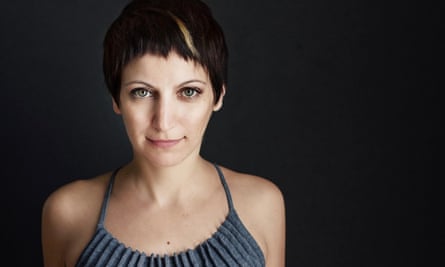
We’re a part-time orchestra made up of the country’s best musicians, who come together to perform once or twice a month in the season. I’m from Cleveland, Ohio, one of only a handful of foreigners in the orchestra. I’ve been part of it for 11 years – the orchestra itself is 16 years old. Istanbul is a cosmopolitan big city. Of course you have the orientalism and the traditional music, but most people are far more European than westerners expect. We perform the standard classical and romantic repertoire, less often new music – which is a little slow in coming to Turkey, although there’s a small but growing audience. For our Proms debut we’re giving the world premiere of Gabriel Prokofiev’s Violin Concerto. The percussion section is thrilled – we get to play a lot and have some fun. It’s a nice challenge and we’re putting in the elbow grease at the moment, preparing it. You might also notice some authentic Turkish percussion instruments – finger-cymbals, darbuka and doumbek drums. And we’ve got a surprise or two up our sleeves if we get asked to do an encore!
The Borusan Istanbul Philharmonic Orchestra conducted by Sascha Goetzel perform on 29 July
Lynette Seah, violin, Singapore Symphony Orchestra
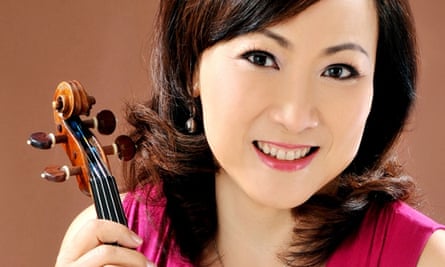
I’ve been with the orchestra since it was founded in 1979. Singapore’s multicultural society is the perfect backdrop for the orchestra, which is able to act as a bridge between the musical traditions of Asia and the west. The Proms premiere of Zhou Long’s piano concerto inspired by kung fu movements is a great example of this, with strong Chinese influences and the unmistakable sound of Chinese percussion. There is also a growing demand for work by Singaporean composers, of whom we will give four premieres this season. We’ve many loyal regulars and supporters, and our Babies Proms – for under-sixes – always sell out. I particularly enjoy the family concerts at the Botanic Gardens, where we have an audience of 5,000 despite the tropical weather conditions!
The Singapore Symphony Orchestra conducted by Lan Shui perform on 2 September
Riikka Silvonen, violin, Lapland Chamber Orchestra
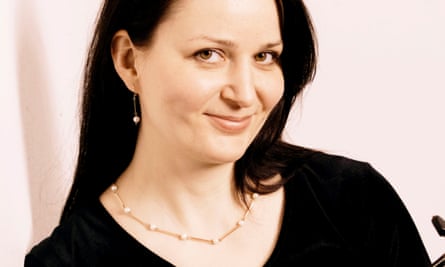
Only four of the 18 players are not from Lapland and, as the orchestra grows, that figure is getting ever smaller. We’re based in a new concert hall in Rovaniemi, but an important part of our work is travelling around Lapland (which covers about a third of Finland) to play for village audiences. We perform a wide range of music – from early baroque to avant-garde – and have just finished a Mozart symphony cycle. But we also play music from Finnish and Scandinavian composers and work with a local folk group; there’s a powerful new wave of folk music in Finland today that influences several composers. Our audience responds positively to practically everything. I remember several years ago we gave a concert in Utsjoki, a village in the far far north. The small hall was packed with people, some dressed in their national Lappish costumes. At the end of the two-hour concert of hardcore contemporary music an old man sitting in the front row asked us: “Can’t you play something more?”
The Lapland Chamber Orchestra conducted by John Storgårds perform on 9 August
Otilia Alitei, violin, Armonia Atenea
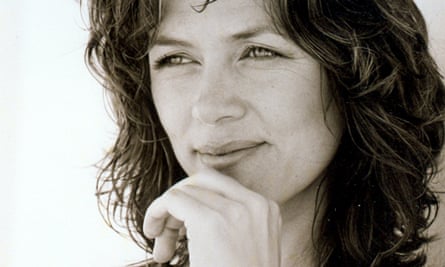
There is not a big tradition for classical music in Greece, but I think in the last year we’ve brought a new public to our concerts. We play any kind of music – operetta, opera, 19th and 20th century, contemporary. Even jazz, maybe once a year. Here they have a tradition more for romantic opera, bel canto, but not so much 17th-century music. So we started a baroque project, and in the last year have recorded five CDs. For the Proms, we’re presenting music inspired by Greek mythology – we feel very proud to have been invited to present this programme in such a historic festival. It’s a big challenge.
Armonia Atenea conducted by George Petrou perform on 2 August
Dale Kim, viola, Seoul Philharmonic Orchestra
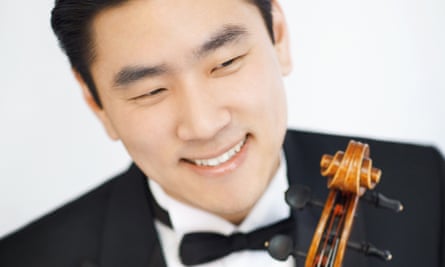
There’s a classical music boom throughout Asia. Audiences are gaining a greater understanding, and since 2005, when the SPO relaunched as a semi-independent organisation, we’ve upped our game. Everyone’s on the same path – to establish a world-class orchestra and build a classical music tradition that will endure. Around 80% of us are Korean-born – but it’s not something anyone cares about, and the number of international players has risen steadily this last decade. I’m Korean Canadian and have been a member for six years. Alongside standard classical works, we play a lot of contemporary music. Unsuk Chin has been our composer-in-residence since 2006 and is also the artistic director of our contemporary music series. We’re bringing one of her works, Su, the concerto for sheng (a traditional Chinese reed mouth organ) and orchestra to the Proms. I’ve encountered the Proms so many times on YouTube and heard so much about them. To be there in flesh and blood, seeing and feeling for myself the energy that makes them so famous will be amazing.
The Seoul Philharmonic Orchestra conducted by Myung-Whun Chung perform on 27 August
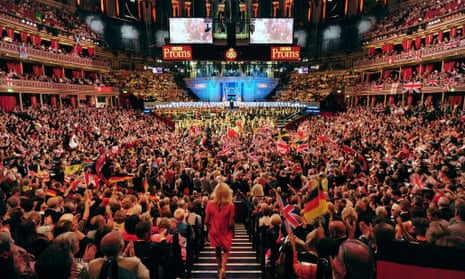
Comments (…)
Sign in or create your Guardian account to join the discussion